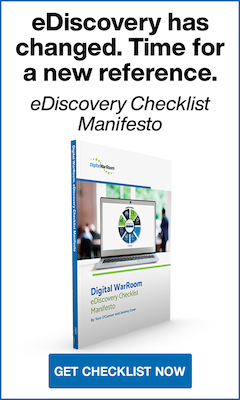Email has become an indispensable tool for communication in the legal profession, enabling lawyers to exchange information and collaborate efficiently. However, managing and retaining the vast volume of emails can be challenging, particularly when it comes to legal and compliance obligations. This article explores the importance of email thread within the realm of email eDiscovery, highlighting their key elements and sharing best practices for seamless implementation.
What is an Email Thread?
The meaning of email thread refers to a series of related email messages grouped by subject line and metadata. In legal settings, these threads, also called email chains, allow lawyers to easily follow conversation flows by displaying all related messages in a single view.
This grouping is particularly valuable when multiple parties are involved in a discussion, as it ensures that everyone can access the entire conversation history without searching through individual emails.
Email threads streamline communication and provide a comprehensive overview of discussions, making them an essential tool in legal correspondence and case management.
Advantages of Email Threads for Lawyers
- Improved Organization: Email chains help in organizing conversations by keeping all the messages together. This makes it easier for legal professionals to track the progress of discussions, ensuring that important information is not lost in a cluttered inbox.
- Enhanced Collaboration: By grouping all the related emails, email chains facilitate better collaboration among legal team members. Lawyers involved in the conversation can see the entire thread, making it easier to understand the context and provide more informed responses.
- Time Efficiency: Email chains save time by reducing the need to search for individual messages. Legal professionals can quickly find the information they require within a single thread, improving overall productivity and allowing them to focus on more critical tasks.
- Documentation and Accountability: Email chains provide a written record of discussions, which is essential for accountability, compliance, and reference purposes. This is particularly important in legal settings where maintaining a clear record of communications is pivotal.
Role of Email Thread in eDiscovery
eDiscovery (electronic discovery) refers to the legal process of identifying, collecting, and producing electronically stored information (ESI) for litigation purposes. Email chains play a significant role in eDiscovery as they often contain critical evidence that can impact the outcome of a case.
- Identification and Collection: During the eDiscovery process, legal teams must identify and collect all relevant threads. This involves searching through vast amounts of data to find threads that are pertinent to the case.
The use of eDiscovery software, such as Digital WarRoom, can streamline this process by automating the identification and collection of relevant email thread, making the process faster and more efficient. - Review and Analysis: Once email chains are collected, they must be reviewed and analyzed to determine their relevance to the case. This can be a time-consuming process, but it is essential to ensure that all pertinent information is considered. The use of advanced eDiscovery tools can help legal teams efficiently review and analyze threads, saving time and resources.
In the case of SEC v. Telegram Group Inc. and TON Issuer Inc., the U.S. Securities and Exchange Commission (SEC) alleged that Telegram had conducted an unregistered offering of digital tokens called Grams. During the eDiscovery process, email chains were crucial in identifying key communications between Telegram executives and investors regarding the Gram token offering.
By analyzing the threads, the SEC was able to gather evidence showing that Telegram had marketed the Gram tokens as investment contracts, which are considered securities under U.S. law. The email thread also revealed that Telegram had failed to register the offering with the SEC, as required by law. This evidence was instrumental in the SEC's successful case against Telegram, which ultimately resulted in a $1.2 billion settlement.
Growing Need for Efficient eDiscovery Solutions
The sheer volume of electronic communications in litigation has skyrocketed, with estimates suggesting that over 347 billion emails are sent daily. This explosion of data presents a significant challenge for legal teams tasked with sifting through thousands of emails to find relevant information. Traditional methods of email review are often inefficient and prone to errors, leading to increased costs and time delays.
Modern eDiscovery software addresses these challenges by incorporating email threading, which organizes and contextualizes email communications. This capability allows lawyers to quickly identify and review the most pertinent information without wading through redundant or irrelevant emails.
How Email Threading Is Growing And Becoming A Key Factor For Lawyers' Success In eDiscovery?
- Contextualization of Communications: Email threading groups-related messages into coherent conversations, providing a clearer understanding of the context surrounding communications. This is crucial for legal teams, as it enables them to grasp the relationships and timelines that may impact a case. For instance, understanding the progression of discussions can reveal intent or highlight critical decisions made by the parties involved.
- Reduction of Review Time: By allowing legal teams to focus on the last email in a thread, which typically contains all preceding messages, email threading significantly reduces the time spent on document review. This efficiency is particularly beneficial in large-scale cases where thousands of emails may be involved. For example, eDiscovery tools can automatically tag the last email in a thread, allowing reviewers to prioritize their efforts effectively.
- Elimination of Duplicates: Email threading helps to identify and eliminate duplicate messages, streamlining the review process further. This not only saves time but also minimizes the risk of missing critical information that may be buried within redundant emails.
- Enhanced Insight Discovery: Advanced eDiscovery software equipped with email threading capabilities can analyze email content for patterns and trends. This analysis can reveal recurring themes or communication styles that may be relevant to a case. For example, identifying specific language or code words used within a thread can provide insights into the intent behind communications, which may be critical in cases involving fraud or misconduct.
Global Adoption of eDiscovery Software
Law firms and corporate legal departments around the world are increasingly adopting eDiscovery software that utilizes email threading. For instance, firms in the United States and Europe are leveraging tools to enhance their eDiscovery processes which not only facilitate efficient email review but also integrate advanced analytics to provide deeper insights into the data.
In Australia, legal teas are utilizing eDiscovery tools to navigate complex regulatory environments, where compliance with data retention and discovery requirements is paramount. By employing email threading, these teams can ensure that they preserve complete email threads, thereby enhancing the defensibility of their discovery processes.
Conclusion
Email threads are a valuable tool for organizing and managing conversations in legal settings. They offer numerous advantages such as improving organization, enhancing collaboration, saving time, and providing comprehensive evidence. By leveraging email chains and implementing best practices, lawyers can streamline the eDiscovery process, reduce costs, and ensure that critical information is not overlooked. To learn more about email retention and its importance in eDiscovery, check out our detailed guide: Email Retention in eDiscovery: Strategies for Effective Data Management.
-1.png?width=400&height=164&name=DWRLogoClassic%20-%20Copy%20(2)-1.png)









Comment On This Article